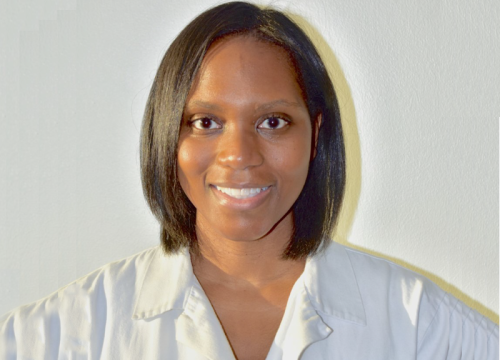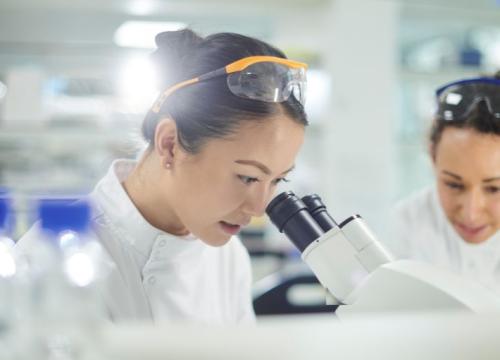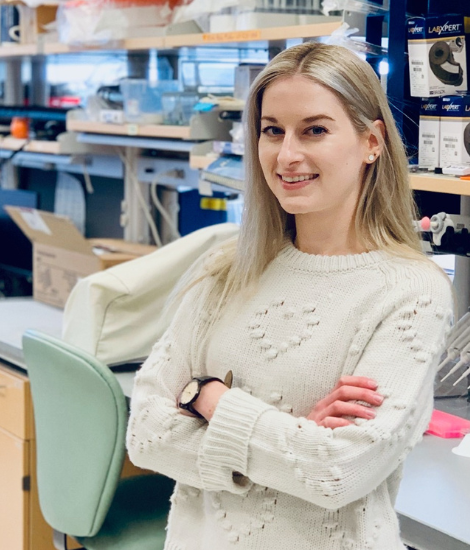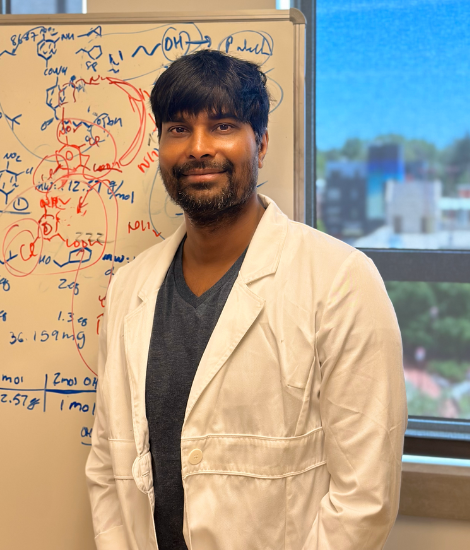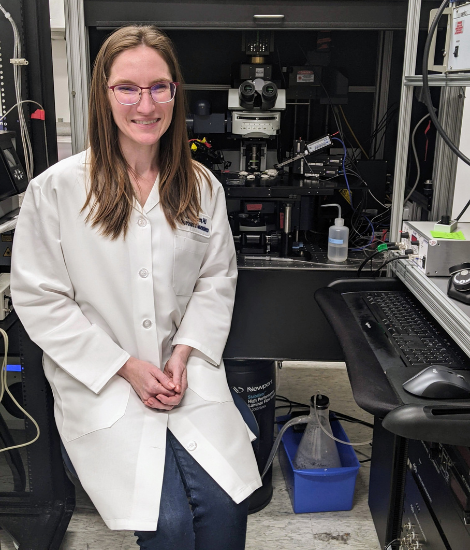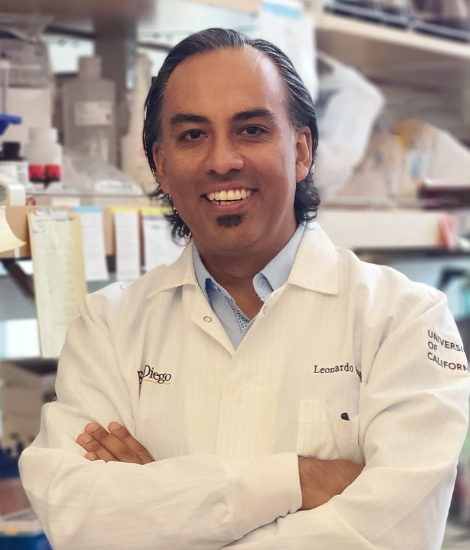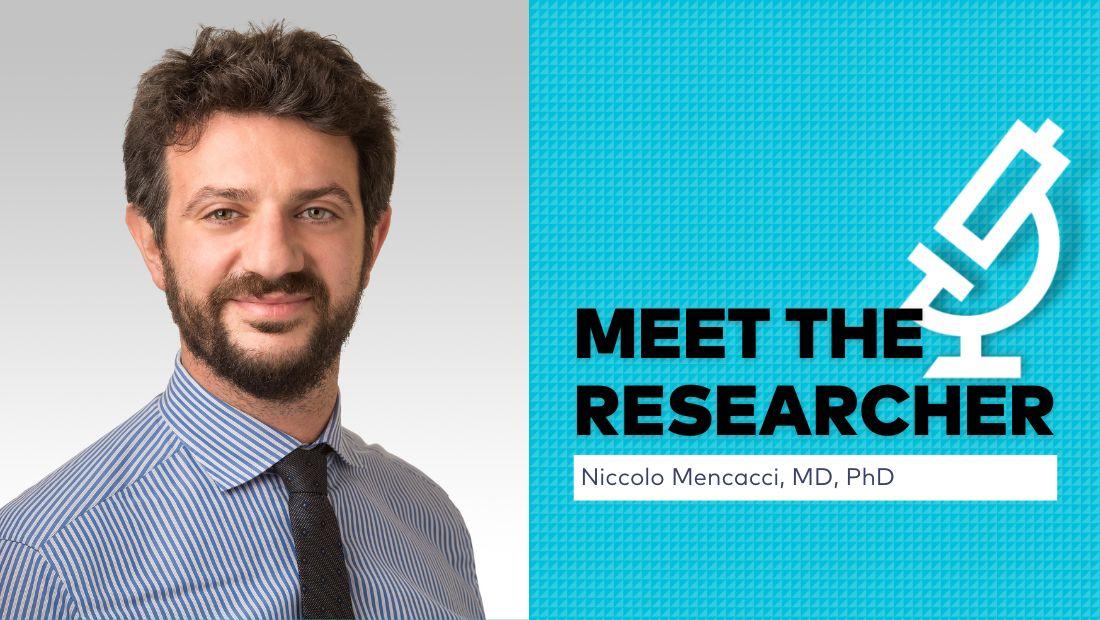My PD Story
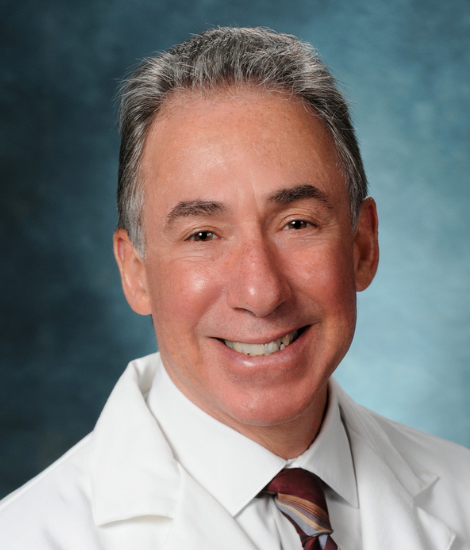
Scott Waldman, MD, PhD
2023 Impact Award
Testing a New Way to Protect Neurons by Empowering their Mitochondria
Mitochondria are the small oxygen-consuming and energy-producing powerhouses inside cells. Evidence has shown that in Parkinson’s disease (PD), mitochondria are impaired in key groups of dopamine neurons in the brain. This impairment may contribute to the neurons’ progressive breakdown, hallmark to the disease and cause of the gradual onset of movement symptoms. Scott Waldman, MD, PhD, recipient of a Parkinson’s Foundation 2023 Bill and Amy Gurley Impact Award, has found a receptor on the surfaces of those PD-associated dopamine neurons that may provide therapeutic ways to protect the mitochondria and prevent the progression of the disease.
The receptor —called GUCY2C— was first discovered on the surfaces of cells in the intestine; there, specific hormones bind to the GUCY2C receptors and induce intestinal secretion. Drugs that mimic those hormones have been developed as treatments for constipation. GUCY2C has only recently been discovered to be on the surface of PD-relevant dopamine neurons as well, where their role seems to be linked to keeping neuronal mitochondria healthy.
Dr. Waldman, with the help of his coinvestigator Dr. Richard Smeyne at Thomas Jefferson University in Philadelphia, Pennsylvania, has already shown that genetically removing GUCY2C from dopamine neurons causes them to have smaller and less effective mitochondria, making the neurons more likely to break down. This discovery was their first clue that GUCY2C may be a useful clinical target for new PD therapies.
For his first experiment supported by this award, Dr. Waldman will take dopamine neurons from mice with and without GUCY2C receptors and treat them with a hormone-mimicking drug that activates the receptors. From this, he will be able to confidently determine if GUCY2C activation improves mitochondrial health through biochemical measurements and comparisons across the tested groups.
Next, Dr. Waldman will add alpha-synuclein protein clumps, linked to PD development and progression, to those same mouse neurons and see if GUCY2C activation protects them from the disease-causing proteins. If his hypothesis proves correct, the GUCY2C-activated neurons should be protected from PD-associated damage due to their strengthened mitochondria, while the neurons lacking the receptor will be more vulnerable. Dr. Waldman will also recreate this alpha-synuclein stress test using living mice, ultimately looking at their brains under a microscope to see whether GUCY2C activation was able to protect against PD-like neuron degeneration.
Altogether, this work will shed light on a potential new avenue for PD therapies, combating the disease by strengthening the mitochondria in the vulnerable dopamine neurons. Asked about the significance of this research support, Dr. Waldman said that this Impact Award “underscores the significance of discovering a new molecular pathway that regulates the integrity of neurons in the substantia nigra and which can be co-opted to defend against toxic insults… it represents an essential source of support to continue studies that advance these novel molecular discoveries to translation into new approaches to prevent and treat Parkinson’s disease.”
Meet more Parkinson’s researchers! Explore our My PD Stories featuring PD researchers.
Related Materials
More Stories
from the Parkinson's community




